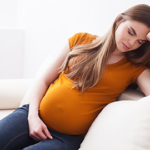Vitamin D deficiency is more common than ever, and many experts are concerned that this deficiency may lead to a wide variety of health problems, including depression.
The active form of vitamin D is produced by the human body as a byproduct of natural sun exposure; it is also found in certain foods, including some kinds of fish, egg yolks, and fortified dairy and grain products. Certain people – those with decreased sun exposure or diets with low vitamin D – may be more vulnerable to vitamin D deficiency. Low levels of vitamin D have been associated with a spectrum of health problems, and several studies have shown that vitamin D deficiency is also associated with depression.
What are the signs and symptoms of vitamin D deficiency? Severe vitamin D deficiency cause rickets; however, most people with vitamin D deficiency are unaware they have this problem.
New data from Oregon State University has shown a link between low levels of vitamin D and depression in otherwise healthy young women. Researchers recruited 185 healthy female college students 18 to 25 years in age. Vitamin D3 levels were measured and the participants completed the CES-D weekly for five weeks. Vitamin D3 insufficiency (<30 ng/ml) was recorded in 42% of the women at baseline. After adjusting for season, body mass index, race/ethnicity, diet, and exercise, the researchers found that lower vitamin D3 levels predicted clinically significant depressive symptoms (P < .05).
From this type of study we cannot say whether vitamin D deficiency actually causes depression; it may just be more common in people with depression. Nor do we yet know if supplementing with vitamin D would prevent or treat depressive symptoms in this setting.
A recent meta-analysis of randomized controlled trials (RCTs) has attempted to determine whether vitamin D has antidepressant effects. In this study, the authors analyzed data from nine trials with a total of 4923 participants, in which vitamin D supplementation was used to treat depression. No significant reduction in depression was seen after vitamin D supplementation. However, the authors noted that most of the studies focused on individuals with relatively low levels of depression and sufficient (not deficient) serum vitamin D levels at baseline. In addition, the studies used varying vitamin D doses and durations of treatment.
The bottom line? Further studies are required to determine whether vitamin D can be used to alleviate depressive symptoms in those with vitamin D deficiency.
Should We Screen Women for Vitamin D Deficiency?
There is considerable evidence to link vitamin D deficiency with various health problems. While there does not appear to be enough data to support screening for vitamin D deficiency in the general population, there is a consensus that certain populations at high risk for vitamin D deficiency should be screened.
This includes women who are pregnant or planning to conceive. In this population, there have been several studies which link low vitamin D levels with perinatal depression. But vitamin D is not only important for the mother’s mental health. Several studies have shown that lower maternal vitamin D levels early in pregnancy are associated with risk of low birth weight and small-for-gestational age infants. Other studies have demonstrated that mothers with lower vitamin D levels are at increased risk for gestational diabetes, hypertension, and pre-eclampsia. Also of note is the fact that mothers with low vitamin D status secrete lower levels of vitamin D into the breast milk, putting exclusively nursing infants at risk of deficiency (Haggerty, 2011).
Ruta Nonacs, MD PhD
Kerr DCR, et al. Associations between vitamin D levels and depressive symptoms in healthy young adult women. Psychiatry Research 2015.
Gowda U, Mutowo MP, Smith BJ, Wluka AE, Renzaho AM. Vitamin D supplementation to reduce depression in adults: Meta-analysis of randomized controlled trials. Nutrition. 2015 Mar;31(3):421-429.
Vitamin D: Information Fact Sheet for Health Professionals (NIH)
Depression in Women: Is There A Role for Vitamin D?







Leave A Comment